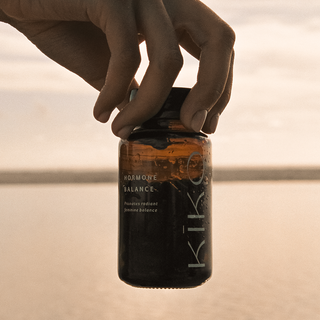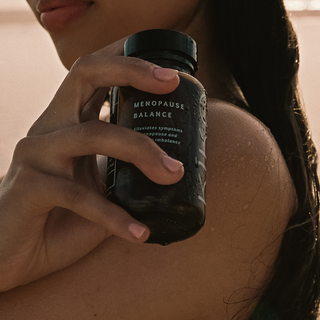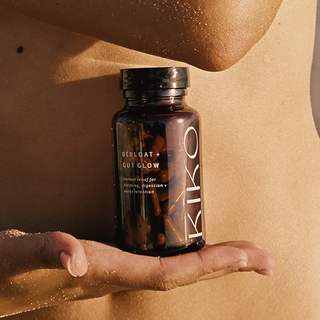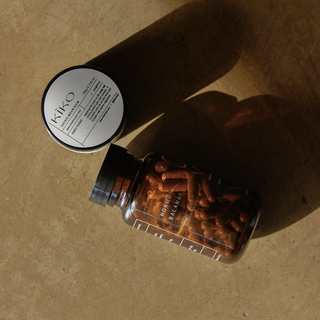
Polycystic Ovary Syndrome (PCOS) affects millions of women worldwide, causing a range of symptoms such as irregular periods, weight gain, acne, and excessive hair growth. While it can be challenging to manage, understanding the underlying causes of PCOS and adopting a holistic approach to healing can make a significant difference in overcoming its symptoms. Let’s explore how you can begin to heal PCOS from the inside out by understanding why these symptoms occur, why they persist for many women, and how nutrition and lifestyle changes can support the journey to better health.
Understanding Why You’re Experiencing PCOS Symptoms
PCOS is a complex condition influenced by various factors such as genetics, hormonal imbalances, insulin resistance, and inflammation. The exact cause of PCOS is still not fully understood, but research shows that hormonal imbalances play a key role. For example, women with PCOS often have higher levels of androgens (male hormones) which can lead to symptoms like acne, hair growth, and irregular periods. Additionally, insulin resistance is common in PCOS, where the body struggles to use insulin effectively, leading to high blood sugar levels and, in turn, stimulating the production of more androgens.
Environmental and lifestyle factors, including stress, diet, and lack of physical activity, can exacerbate these symptoms. Stress can trigger the release of cortisol, which affects other hormone levels in the body, while diets high in refined sugars and processed foods can worsen insulin resistance. By understanding the interplay of these factors, you can begin to address the root causes of your symptoms.
Why Many Women Struggle to Resolve Their Symptoms
Many women find it difficult to resolve PCOS symptoms because conventional treatments often focus on symptom management rather than addressing the underlying issues. Birth control pills, for example, are commonly prescribed to regulate menstrual cycles and reduce acne but do not target insulin resistance or hormonal imbalances at their root. While these medications can offer temporary relief, they may not provide a long-term solution.
Moreover, the complexity of PCOS means that symptoms can vary widely from one woman to another. This diversity makes it challenging to develop a one-size-fits-all treatment plan. Additionally, natural supplementation and lifestyle factors such as diet, exercise, and stress management are often overlooked in conventional treatment, even though they play a crucial role in managing PCOS. Many women also face societal pressures, lack of support, and misinformation, further complicating their healing journey.
Healing PCOS Through a Root Cause Approach
Healing PCOS requires addressing the root causes, such as hormonal imbalances, insulin resistance, inflammation, and stress. A holistic approach that includes targeted supplementation, nutritional changes, lifestyle adjustments, and stress management can help restore hormonal balance, improve insulin sensitivity, and reduce inflammation.
Hormonal Balance
A key aspect of managing PCOS is regulating hormones. Natural supplements like the Kiko Vitals Hormone Balance can help to bring your body back into a state of equilibrium through the use of powerful herbs like ashwagandha, red raspberry leaf, chasteberry, and more supportive actives.

Insulin Sensitivity
Improving insulin sensitivity is vital for women with PCOS, especially those struggling with weight management. Reducing intake of refined sugars and processed foods while increasing fiber-rich foods can help regulate blood sugar levels. Regular physical activity, such as strength training or walking, can also enhance insulin sensitivity.
Inflammation Reduction
Chronic inflammation can exacerbate PCOS symptoms. Incorporating anti-inflammatory foods such as leafy greens, berries, fatty fish, nuts, and seeds into your diet can help. Avoiding inflammatory foods like processed meats, fried foods, and sugary drinks is equally important.
Nutrition & Lifestyle Strategies to Support Your PCOS Healing
Balanced Nutrition
Adopting a diet rich in whole foods, healthy fats, lean proteins, and fiber can support hormonal balance and improve insulin sensitivity. Focus on including a variety of vegetables, fruits, whole grains, legumes, and lean proteins in your meals. Incorporate healthy fats such as avocados, nuts, seeds, and olive oil to support hormone production and reduce inflammation.
Reduce Refined Carbs: High intake of refined carbohydrates and sugar can worsen insulin resistance. Opt for complex carbohydrates like sweet potatoes, quinoa, brown rice, and oats. Pairing carbohydrates with protein and healthy fats can also help stabilize blood sugar levels and reduce insulin spikes.
Exercise Regularly: Engaging in regular physical activity can help manage weight, improve insulin sensitivity, and reduce stress. A mix of cardiovascular exercises (like walking, jogging, or cycling) and strength training can be particularly beneficial. Even low-impact activities like yoga and Pilates can help reduce stress and support hormone balance.
Prioritise Sleep
Poor sleep can affect hormonal health and worsen PCOS symptoms. Aim for 7 - 9 hours of quality sleep each night. Establish a consistent sleep schedule, create a relaxing bedtime routine, and minimize screen time before bed to support better sleep patterns.
Manage Stress
Chronic stress can lead to hormonal imbalances. Incorporate stress-reducing practices such as mindfulness, deep breathing exercises, yoga, or journaling into your daily routine. Taking time for self-care can go a long way in supporting your overall health.
Conclusion
Healing PCOS from the inside out is a gradual process that requires patience, persistence, and a tailored approach. By focusing on the root causes and incorporating nutrition, lifestyle changes, and stress management into your routine, you can take proactive steps toward alleviating symptoms and reclaiming your health. Your body has an incredible ability to heal when provided with the right support, and adopting these strategies can set you on a path to lasting wellness.



